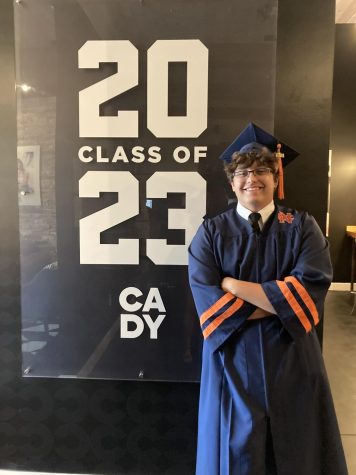The Monkeypox vaccines, how to prevent it and risks
ROGER HARRIS/SCIENCE PHOTO LIBRARY
In early June, Georgia saw its first ever case of Monkeypox; now the cases of the virus in Georgia peaked at 1,220. It can not only spread through people but also through certain animals. The vaccines for the virus sometimes incducee side effects similar to smallpox.
August 25, 2022
As of Monday, August 22, every state in the country possesses at least one case of Monkeypox. Monkeypox describes itself as a rare disease caused by infection from the virus; a close relative of Smallpox. Monkeypox symptoms follow a similar pattern as Smallpox, causing fever, headache, muscle aches, backache, swollen lymph nodes, a general feeling of discomfort, exhaustion and a severe rash. Monkeypox symptoms remain much milder than its counterpart. The first case of Monkeypox did not appear until 1958, contrary to popular belief. Two outbreaks of a pox-like disease occurred in colonies of monkeys kept for research. Despite receiving the name “Monkeypox,” the source of the disease remains unknown.
Monkeypox affects certain communities more than others around the country, and members of the LGBT community happen to experience the full force of this outbreak. Although Monkeypox predominantly displays itself in the LGBT community, the impact of HIV/AIDS left a serious impact on the community leading up to today’s potential crisis.
“We should not allow this to have the same impact HIV/AIDS did on the gay communities.” The Blade’s Peter Rosenstein said.
“At this time, data suggest that gay, bisexual, and other men who have sex with men make up the majority of cases in the current Monkeypox outbreak. However, anyone, regardless of sexual orientation or gender identity, who has been in close, personal contactwith someone who has Monkeypox is at risk,” the CDC said.
The three ways to prevent Monkeypox include avoiding skin-to-skin contact, contact with contaminated objects and washing your hands consistently. The confirmed number of cases currently leads to over 36 thousand. Two different types of vaccines exist: a second-generation Smallpox vaccine (ACAM2000) and a Smallpox and Monkeypox vaccine (JYNNEOS).
One study reports that the first-generation Smallpox vaccine (ACAM2000), transpired to 85% effectiveness against Monkeypox (previously known as Zaire) amongst 338 patients in the Democratic Republic of the Congo. The youth of the virus causes the study’s importance to waiver. Evidence for tolerability turns out ordinary. No unaffected association of protection leads to the established clinical successfulness of ACAM2000 against Monkeypox. The safety and effectiveness of ACAM2000 in preventing Smallpox or Monkeypox does not apply to people under age of 16. No data showed acceptability, cost-effectiveness, feasibility, values or health equity. The balance of consequences favors the intervention in the context of the current public health emergency.
The second vaccine (JYNNEOS) contains the vaccinia virus, a virus related to the monkeypox and smallpox viruses, which cannot copy itself in human cells and cannot spread to other parts of the body or people. The vaccine can help protect people against monkeypox before exposure to the virus. Experts believe the vaccine can also reduce the risk of infection if taken within four days after exposure. People should make sure to reduce the risk of serious illness within 14 days after exposure.
“I would take the monkey pox vaccine, just to feel safer around other people. If I get the monkeypox vaccine I wouldn’t have to worry about getting monkeypox. I also do not want to have to worry about going to the hospital,” North Paulding senior Kyan Bullock said.
Not all vaccines cause risks, but for several people who experience exposure to Monkeypox, the risks from the virus significantly outweigh the risks from the Smallpox or Monkeypox vaccine. Based on studies of Monkeypox in Central Africa, people living in medically underserved areas showed that the disease killed up to 11% of people infected.
“I’m scared of needles, so any shots naturally scare me. I do not plan on getting the monkeypox vaccine. I do not trust when any authority figure tells me what to do,” senior John Wright said.







